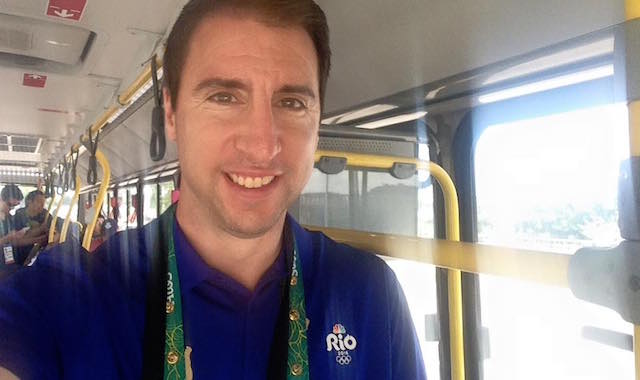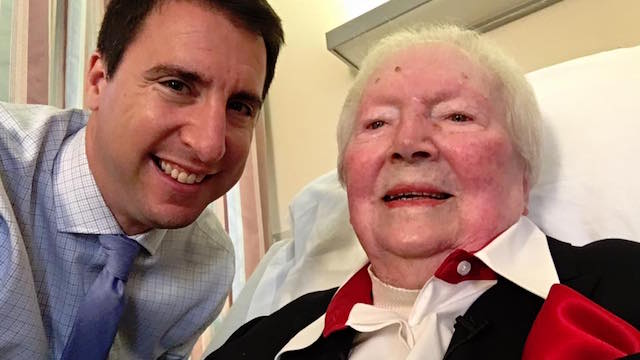Most television news reporters try to avoid clichés, but we tend to stumble upon one when people ask what we love most about our jobs.
The recurring answer? “Meeting people and telling their stories.”
I can’t deny it. I love that part of my job. Nearly every day involves meeting someone new; nearly every meeting involves learning something new. I continuously meet people who make me think, laugh, smile, and even cry.
And on the rare occasion, I get to meet someone like Clem Ferguson.
This past April Fool’s Day, I was assigned to tell Clem’s story, and it was a great one. Clem, I was told, was a lifetime Georgian who had finally received the chance, after 96 years, to live her childhood dream.
That dream? She had always wanted to become a flight attendant.
Clem’s nursing facility, Christian City in Union City, Ga., arranged for her to receive honorary wings from Delta Airlines. The previous week, I learned, Delta employees had taken Clem through a sped-up “training day” and bestowed upon her the title she had long desired. I reached out to the airline and received video of the experience; to shoot my story, I simply needed to interview its star.
The interview turned out wonderful, but weeks later I remember everything else. Clem smiled the entire time and sparkled with gratitude for so many things in her life. She seemed genuinely touched by the opportunity to be interviewed for the local news. She also made sure I didn’t leave without looking at photographs of her five sisters and now-deceased husband.
This did not feel like a typical interview. It felt entirely disarming, so much so that when Clem poked fun at me during this little off-air exchange, she caught me completely off guard:
I cannot say it any more simply: Clem made my day.
Through my story that night, she made the days of many others.
I posted the piece on Facebook shortly after it aired. In three weeks, that post has reached more than 300,000 people, and the accompanying video has been viewed more than 100,000 times. I would like to take the credit, but in this case I think I must give it to Clem.
I’m sure, at some point in your life, someone has made your day like Clem made mine. At 9:00 that morning, I did not know she existed. By 1:00 that afternoon, I felt privileged to cross her path. By 9:00 that night, I was still beaming from the experience.
Three weeks later, I received unfortunate news that left me feeling the opposite.
This past Wednesday, Clem Ferguson passed away. I found out two days later while on vacation in New York, and it stunned me. Clem may have been 96 years old, but she had shown no signs during our interview to suggest the worst. She had displayed the charm, vibrancy, and sincerity of someone who possessed no plans to slow down.
When I heard the news, I felt genuinely sad.
To be sure, Clem by all accounts lived a full, rich, and happy life. She lived for nearly a century and did not seem to express any regrets.
Yet I still felt pained by her passing … largely for the rest of us. Three weeks earlier Clem had brought a beautiful joy to my world, and I imagine she had affected numerous people similarly through the years. Sadly she will no longer be able to do so for anyone else.
But I hope you watch Clem’s story below. I hope she makes you smile. And I hope, no matter what your profession or situation, you acknowledge and appreciate the Clems in your world who brighten your days when you least expect it.
I feel thankful she was able to brighten mine.
Matt Pearl is the author of the Telling the Story blog and podcast. Feel free to comment below or e-mail Matt at matt@tellingthestoryblog.com.







